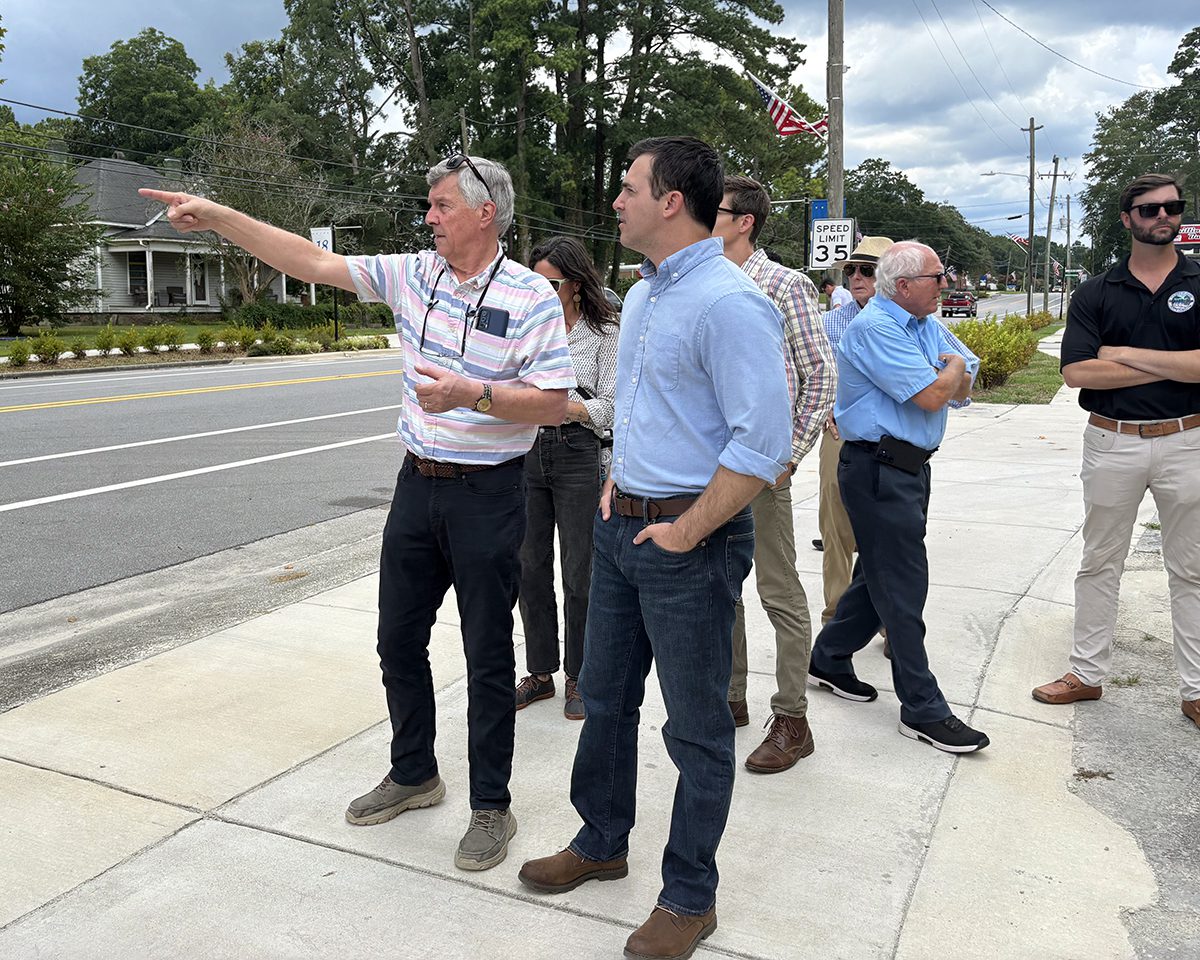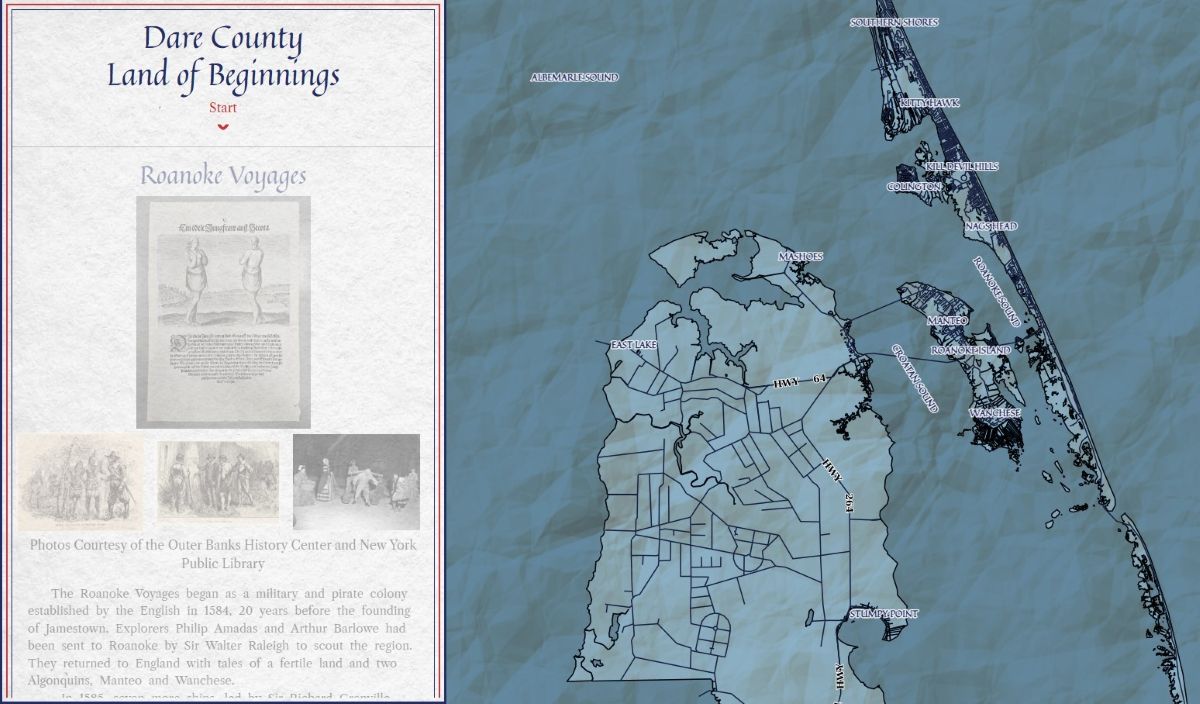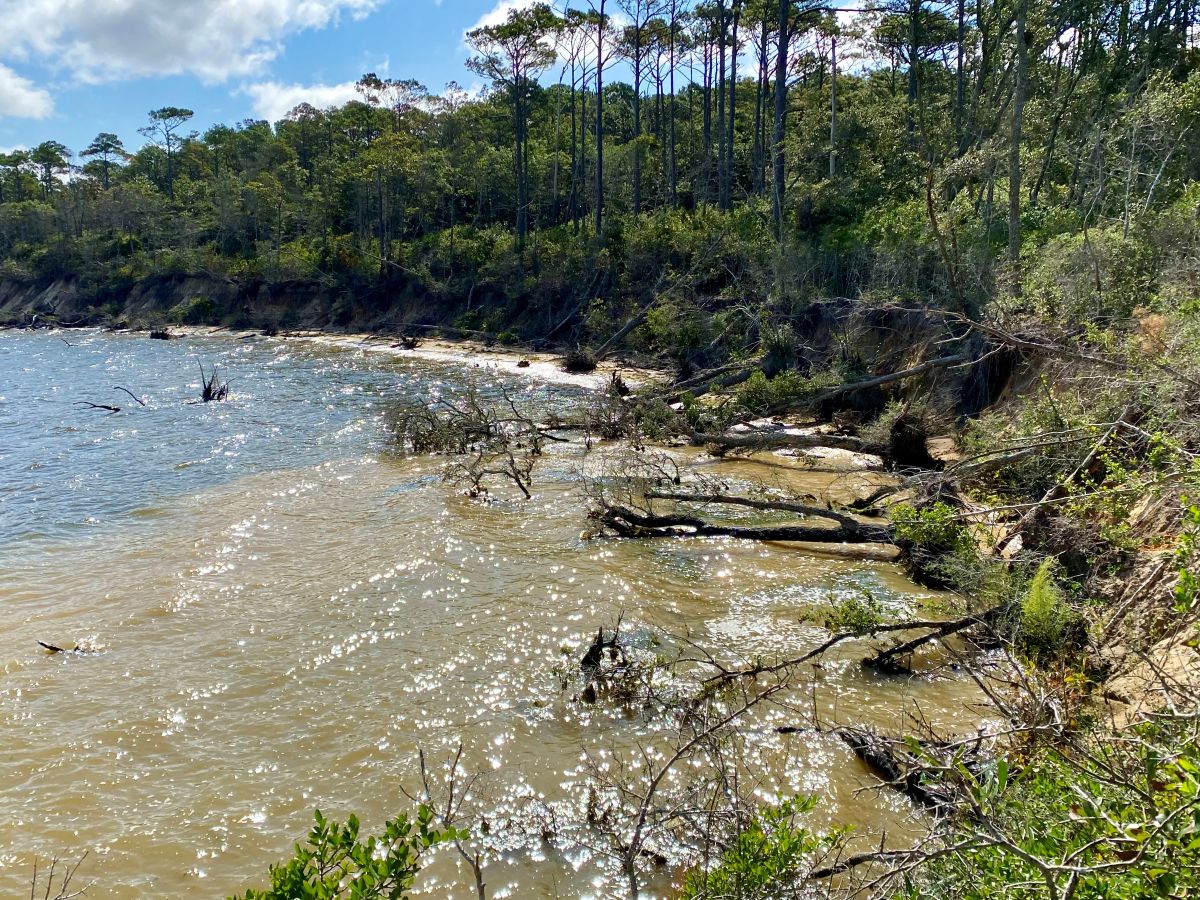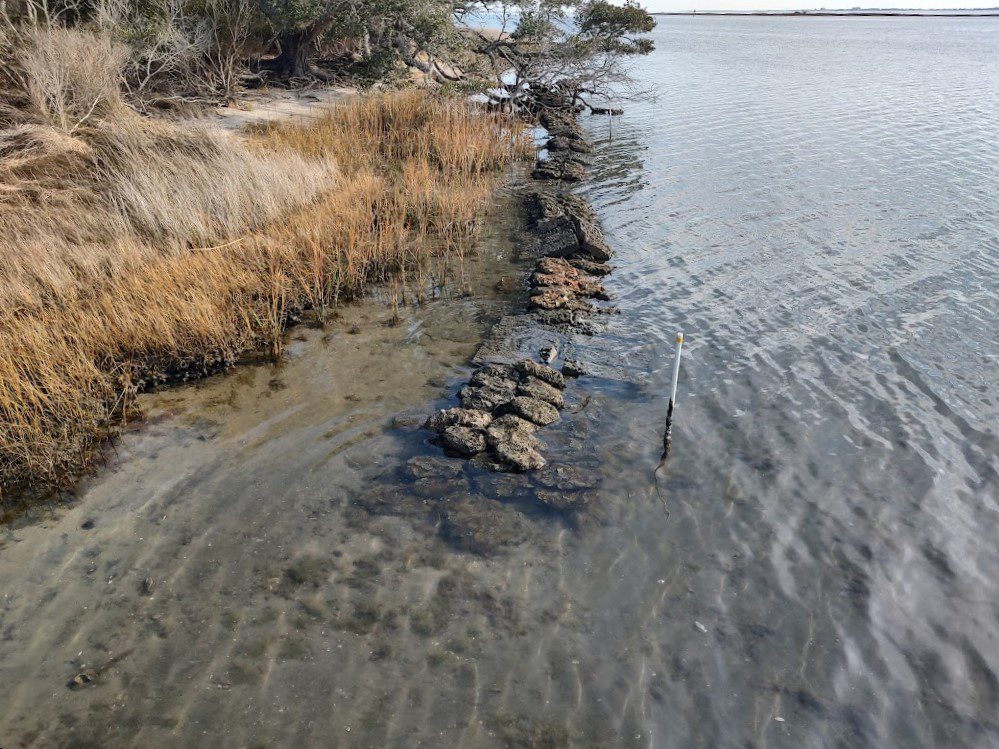
Part of a series about the effects federal budget and staff cuts and the cancellations of programs and services are having in coastal North Carolina.
POLLOCKSVILLE – North Carolina’s attorney general is confident federal funding unceremoniously stripped from local governments earlier this year will be reinstated under a court ruling.
Supporter Spotlight
“I think we’re going to win in court,” Jeff Jackson said Tuesday afternoon. “I think our argument is very strong.”
Jackson had just wrapped up a short tour of Pollocksville’s Main Street, where the town’s longtime mayor pointed to building after building tapped to be raised higher off the ground and out of the path of future flooding that might spill over the banks of the Trent River.
“This building’s got great potential,” Mayor Jay Bender said as the two men strolled a sidewalk toward the river. One that, in September 2018, rose more than 25 feet when Hurricane Florence dumped more than 30 inches of rain.
Floodwaters forced most of the town’s residents to evacuate and destroyed or damaged more than 80% of its buildings.
“There’s nothing woke, there’s nothing political, there’s nothing wasteful,” Bender said to Jackson.
Supporter Spotlight
There’s also nothing left of the federal program that helped communities tailor projects to reduce and prevent damage from future storms.
Four days before Pollocksville officials were to sign contracts to kickstart their project to raise buildings, President Donald Trump’s Federal Emergency Management Agency killed the Building Resilient Infrastructure and Communities, or BRIC, grants program.
The agency said only projects that have been completed will be fully funded.
Gone was the nearly $1.1 million in funding this small Jones County town had worked so hard to secure through a process vetted by FEMA for more than 30 months.
“The rug was pulled out from under us,” Bender said.
A coalition of 20 state attorneys general, including Jackson, filed a lawsuit on July 16 in a federal court in Boston accusing FEMA of unlawfully terminating the BRIC program.
“The basic argument is that was not FEMA money to cancel,” Jackson said during a press conference under a picnic shelter in the town’s waterfront park. “That was congressional money. Congress gave that money to FEMA and told FEMA how to spend it. They said we want you to spend it helping small towns like Pollocksville defend themselves against the next flood. That is exactly what Pollocksville was doing with this money.”
Tuesday’s visit to Pollocksville was his second in recent days to a North Carolina town awarded BRIC funding only to have it ripped away.
Several days ago, Jackson went to Hillsborough to visit a pumping station that flooded when Tropical Storm Chantal swept through parts of central North Carolina early this month. Plans were to construct a new pumping station outside of the floodplain with more than $5 million in BRIC funds.
“We’re going in order of indefensibility,” he said Tuesday in what seems to be a campaign of sorts to raise awareness of FEMA’s decision to cut the BRIC program.
Pollocksville is one of 68 towns, cities and counties in the state that have been awarded BRIC grants since the program officially began its first round of funding in 2020. As previously reported by Coastal Review, almost half of the local governments awarded funding are in the 20 coastal counties.
The only completed BRIC project in the state is a living shoreline in Duck.
Congress approved the program in 2018 with bipartisan support and Trump’s signature during his first presidential term. Since then, nearly $5 billion has been committed to communities across the country for projects to elevate buildings and roads, relocate vulnerable sewer pump stations, control flooding, and strengthen building codes.
“Yes, we want to get this money back to Pollocksville,” Jackson said. “If we’re successful it means we get money back for the entire state.”
He said he expects the court will hold a hearing “within the next few weeks” over a request by the attorneys general for an injunction to lift the funds from being blocked.
“That’s been our request that they treat this as an emergency,” Jackson said. “What we want the court to do is say, while this matter is winding its way through court, which will take six to nine months to fully resolve, the money can continue to flow.”
Jackson said there’s no lack of evidence to support the importance of BRIC funding for communities like Pollocksville that are trying to better protect its residents and infrastructure from floods and other natural disasters exacerbated by the changing climate.
“The flood here, the flood in Hillsborough that happened three weeks ago, there’s fresh evidence with respect to an enormous number of these things,” he said.







